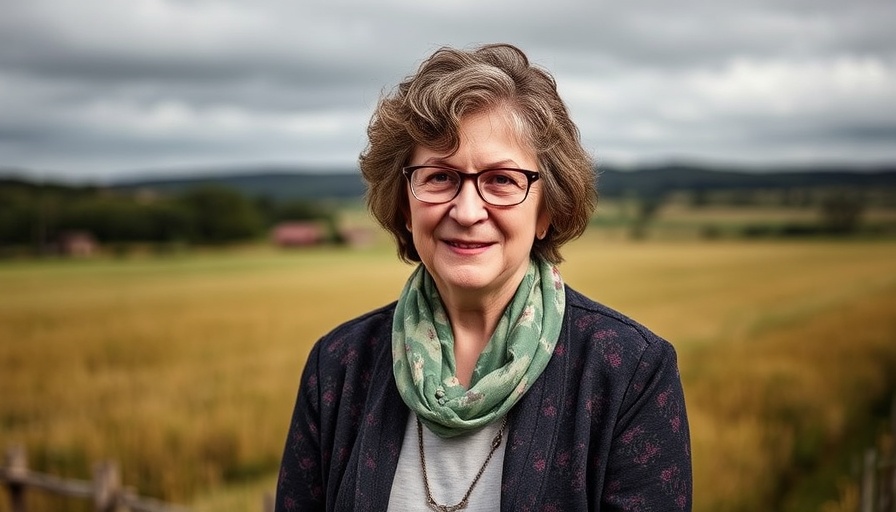
A Recovery Home's Impact: Barbara Kingsolver's Vision Comes to Life
In the green expanses of Lee County, Virginia, where the mountains cradle the small towns struggling with the remnants of the opioid crisis, a significant cultural and humanitarian shift is taking place. Barbara Kingsolver, a renowned author known for her poignant storytelling, has translated her success into community action with her new project, Higher Ground. The recovery residence, funded by royalties from her bestselling novel Demon Copperhead, symbolizes hope where devastation once ruled.
The Painful Reality Behind the Novel
Kingsolver's Demon Copperhead, a reimagining of Dickens' classic works, dives deep into the life experiences of those ensnared by addiction. Residents of Lee County, many of whom are intimately familiar with the narratives portrayed, resonate with the book's themes. For the community, these stories evoke raw emotions; as conveyed by community members, the reflections on their own struggles intersect with character's journeys. As Rev. Nancy Hobbs poignantly states, “I knew these people.” This connection underscores the necessity of spaces like Higher Ground.
Bridging Gaps in Recovery
Opened earlier this year, Higher Ground serves as a beacon for women striving for long-term recovery from addiction. Unlike many recovery options that often fail due to their timing and environment, Kingsolver’s initiative offers a safe and nurturing atmosphere—one that recognizes the cyclic nature of addiction recovery. Joie Cantrell, co-director of Higher Ground, emphasized, “When people recover, they need to be set up for future success.” This environment fosters a bridge between rehabilitation and reintegration into the community.
The Ripple Effect: Empowering Local Women
Higher Ground is not just another recovery home; it represents empowerment and collective healing. Women who come through its doors, like Syara Parsell, have stories that often begin in despair. Parsell, a former inmate, credits her newfound sobriety to the supportive network at Higher Ground that actively participates in her recovery journey. Here, women receive critical resources such as transportation to appointments, educational pursuits, and job placement assistance. This comprehensive approach to recovery acknowledges that healing encompasses more than just sobriety; it includes stability and community.
Future Outlook: A Model for Other Communities
The successful launch of Higher Ground has sparked a conversation about the need for similar initiatives throughout rural America. Communities plagued by addiction require tailored resources that address their unique challenges. King's vision for Higher Ground suggests a lucrative opportunity: replicate this model using local funds and community engagement. The story of Higher Ground serves as inspiration for communities to harness their resources for sustainable recovery initiatives.
Reflection on Cultural Narratives
Ultimately, Kingsolver's work transcends literature; it serves as a call to action against the stigmatization of addiction and showcases the resilience of rural communities. The narratives shared through King's storytelling have moved beyond pages to project significant social impact, illuminating the vital need for recovery resources in areas heavily affected by substance abuse. The responsibility now lies with us, the readers and the community, to continue building on this foundation of hope.
Action Steps for Engaged Citizens
Readers and community members can engage with local recovery initiatives, whether by volunteering, donating, or advocating for similar projects in their area. Community engagement is crucial for continuing the success of spaces like Higher Ground. As you reflect on the powerful impacts of creative narratives in shaping real-world change, consider what you can do to support recovery initiatives in your own community.
 Add Row
Add Row  Add
Add 




Write A Comment